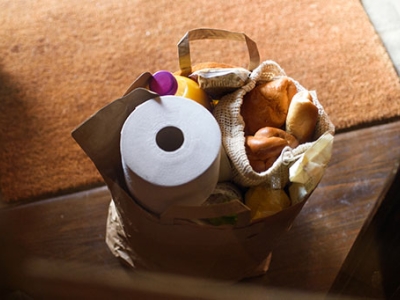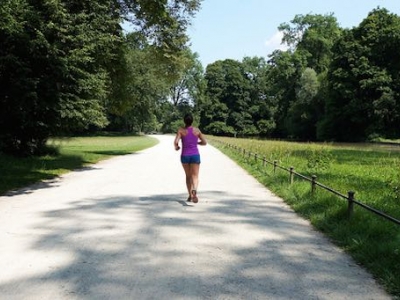
Parenting with a chronic illness
… and the universal truth it teaches us.
I think in our minds we all have an idea of the kind of parent we would like to be. A ‘best version’ of our parenting selves. There are many factors that stop all of us living up to that ideal. But for many parents living with chronic illness, a huge barrier is the reality of living in a broken body in a fallen world.
Nearly half of all Australians (47%) live with a chronic health condition. This issue particularly affects women: one in three develop lasting health problems after giving birth.
What can we learn from those parents living with chronic illnesses and facing each day of chaos and joy not able to rely on their physical form? And if we can’t do it all ourselves, how do we ask for help?
Jess is one mum who is parenting while facing health struggles and shared her thoughts on her experience.
I have had chronic vestibular migraines for the last three and a half years. I’m very triggered by noise and movement … all those small everyday things that we just do are hard for me and that has a huge impact on me and on our family.
This impacts the shape of my week quite a lot. For the last couple of years, I haven’t done any paid work or the activities I used to do … I can’t commit too heavily to things that rely on me to show up, but I can cautiously commit to things that aren’t too hard to back out of. So, I can be part of a playgroup, but don’t often put my hand up to run things; or I can organise coffee catchups, but let people know that I might pull out at the last minute. I have to be careful not to overload my days so that I can get to the end of the day.
Chronic illness impacts our parenting in big and little ways. It can influence decisions around which activities or outings we do with kids, or even the kinds of holidays we take. It can impact the energy we have to give to our kids and how we discipline or manage conflict. Jess says:
It sometimes means I take the easy route, which I know is not the best parenting, but it’s all I can do right now. That might mean more TV than I’d like, or more snacking than I’d like, or it might mean not doing the hard yards of discipline because my head can’t tolerate the noise of a crying, screaming child. Those discipline moments in particular get to me, because I’m really convinced that important shaping of our kids happens in those small moments.
When it comes down to it, chronic illness reveals a universal truth that all people learn eventually: parents are not invincible heroes, but people doing their best and occasionally failing. This can help teach our kids kindness and compassion from a young age.
I hope my kids are learning empathy, and I can definitely see that coming through, especially in the older kids. My nine-year-old boy asks me if I’m OK when he notices I’m a bit wobbly on my feet. I love that he notices and checks in on me.
Chronic illness can certainly make parenting harder, but it also kills the lie that parenting can happen in a vacuum. Remember that ‘best version’ parent we all want to be? We can’t do it. And we can’t even attempt to come close when we isolate ourselves.
I don’t exist in isolation, cut off from who my child is and what she wants and needs. And I don’t exist cut off from my spouse, my family, my community—all the people God has placed around me.
Chronic illness or not, I believe the key to not just surviving parenting, but thriving, is intentionally building a ‘village’ of people you can ask for help. It can be hard to humble ourselves and ask for help but doing this can bring unexpected joys.
Living in a community, like our church family, shows us the truth that we will all need help at some time in our lives. To build and be a part of a community is a precious thing: it takes an investment of our time and energy and is by no means automatic.
For those who are healthy and able, the greatest gift they can give is to love the people in their community or church even when those people can’t ‘give back’ in the way you might expect. Because none of us knows what the future holds. Being firmly rooted in a local community is a safety net for when life does get tough. We all need a village to help us raise our children, navigate illness and big life events and care for parents and relatives as they age and grow frail. Community means loving people even when they cannot give back, and letting people love and serve you even when you can’t reciprocate.
Parenting with a chronic illness is not an experience many people would choose. But it ultimately gives a gift of truth in seeing that our kids need more than just us. They need a church family. Introducing your children to older and younger brothers and sisters in Christ through church community is a great blessing we can all be a part of.
Reflecting on her chronic illness and the unexpected things she has faced, Jess says,
I wouldn’t choose it, but since it’s the lot I’ve been given, I’m actually kind of thankful for the good things I see coming out of it. I would be a lot busier without it, and that has freed up a lot of time for me to spend with my kids. I wouldn’t say I always feel this optimistic about the impact of my health on family life. It can be pretty hard. But it’s good to take a step back every once in a while and look at the bigger picture.
---
Rebecca Sharley is a trained primary school teacher with experience in kids’ and youth ministry. She runs training workshops in kids’ ministry and writes a newsletter called ‘Searching For Grace’ on Substack. She is the author of God’s Family Now: A New Look at Kids’ Ministry.

Colour the Word
Whether you’re memorising and reflecting on God’s word, or just taking a break, make these drawings your own with pens, pencils, paints or textas!
For more articles from Growing Faith, subscribe to our monthly e-newsletter.
To hear about the latest books and resources from Youthworks Media, subscribe here.








